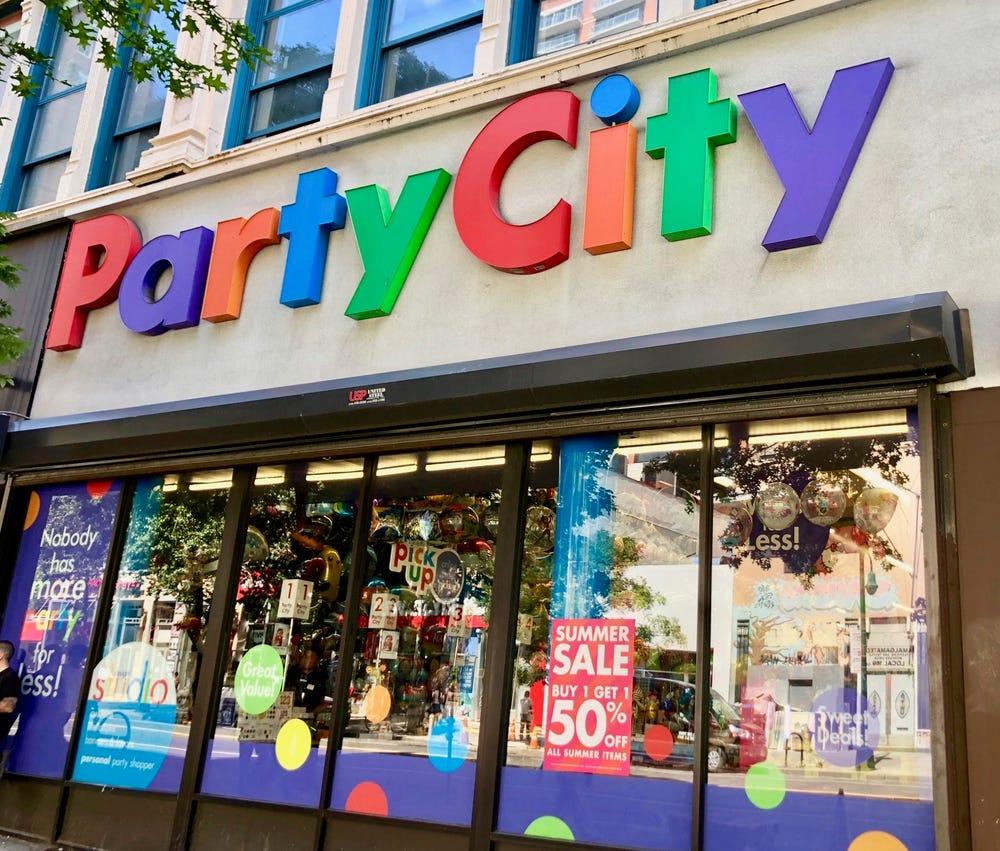Party City Files for Chapter 11 Bankruptcy Amid Mass Layoff Announcement

Party City, the popular retailer for party supplies and seasonal decorations, has filed for Chapter 11 bankruptcy. The filing comes just a day after the company announced mass layoffs, signaling ongoing financial struggles. The move marks a significant chapter in the company’s efforts to address mounting debt and declining sales amid a challenging retail landscape.
Party City filed for bankruptcy in the U.S. Bankruptcy Court for the Southern District of Texas. The filing revealed that the company has accumulated significant debt, driven by rising costs, increased competition from online retailers, and a shift in consumer shopping habits. By entering Chapter 11, the company aims to restructure its debts while keeping its operations running in a limited capacity.
In a statement, Party City emphasized that the bankruptcy process will provide the company with the opportunity to “streamline operations, reduce debt, and position itself for long-term success.”
Mass Layoffs Add to the Challenges
Just 24, hours before the bankruptcy announcement, Party City confirmed plans for mass layoffs affecting employees across its corporate offices and retail locations. While the exact number of layoffs has not been disclosed, employees have expressed concerns about the company’s ability to navigate through this period without further disruptions.
For many workers, the layoffs were sudden and left them with little clarity about their future. Store employees, however, have been reassured that operations will continue at select locations during the restructuring process.
What Led to This Situation?
Several factors have contributed to Party City’s financial troubles, including:
1. Declining In-Store Sales: As more consumers shifted to online shopping, Party City struggled to maintain foot traffic in its brick-and-mortar locations. Competitors like Amazon and Walmart have made it easier for customers to access affordable party supplies without leaving their homes.
2. Inflation and Rising Costs: The cost of raw materials, particularly helium for balloons—a key revenue driver—has skyrocketed in recent years. This has significantly impacted Party City’s ability to offer competitive pricing.
3. Seasonal Business Model: Party City’s revenue heavily depends on seasonal events like Halloween and graduation season. With fewer people hosting large gatherings during economic downturns or the COVID-19 pandemic, sales have taken a hit.
4. Mounting Debt: The company has struggled with a growing debt load, which has limited its ability to invest in modernizing stores or enhancing its e-commerce platform.
Despite the financial hurdles, Party City’s management remains optimistic about the restructuring process. The bankruptcy filing outlines a plan to secure debtor-in-possession financing, which will provide the necessary funds to keep operations running during the bankruptcy process. This financing is expected to ensure uninterrupted services for customers while allowing the company to reorganize its debt and operations.
The company has also highlighted its intention to:
Focus on E-Commerce: With more consumers shopping online, Party City plans to invest in its digital platform to improve the customer experience and expand its reach.
Streamline Store Operations: The company may close underperforming stores while optimizing the performance of its most profitable locations.
Strengthen Key Revenue Drivers: Party City’s Halloween City pop-up stores have been a significant source of revenue, and the company plans to continue investing in this area.
How This Affects Customers
For now, Party City stores remain open, and customers can continue shopping both in-store and online. Gift cards, loyalty points, and store credits will remain valid, and the company has assured customers that there will be no immediate impact on services.
However, customers should keep an eye out for potential store closures, especially as Party City evaluates the performance of its locations during the restructuring process. Many stores may offer clearance sales as they work through inventory.
What It Means for Employees
The mass layoffs have raised questions about the long-term future of Party City’s workforce. While corporate and retail employees have been directly impacted by the layoffs, the bankruptcy filing could lead to further reductions in staff as the company works to streamline operations.
Party City has stated that it is committed to supporting its employees during this transition, but many workers are left uncertain about what lies ahead.
Industry Implications
Party City’s bankruptcy filing highlights the challenges faced by traditional retailers in today’s competitive market. The rise of e-commerce, coupled with economic uncertainty, has forced many companies to rethink their business models. Party City joins a growing list of retailers that have turned to bankruptcy as a means of survival, including Toys “R” Us, Bed Bath & Beyond, and Pier 1 Imports.
What’s Next for Party City?
As Party City navigates the bankruptcy process, the company’s focus will be on achieving financial stability and adapting to the changing retail landscape. This includes reducing debt, improving operational efficiency, and enhancing its digital presence to compete with online giants.
For customers, the immediate future of Party City remains relatively stable, with stores and online services continuing to operate. However, the long-term success of the company will depend on its ability to implement effective changes during the restructuring process.
Party City has filed for Chapter 11 bankruptcy after years of financial struggles.
Mass layoffs were announced a day before the bankruptcy filing, affecting employees nationwide.
The company plans to restructure its debt, focus on e-commerce, and optimize store operations.
Customers can continue to shop at Party City stores and online, with no immediate changes to gift cards or loyalty programs.
The retail industry as a whole continues to face challenges, with traditional brick-and-mortar stores struggling to compete with online retailers.
As Party City undergoes this transition, the retail world will be watching closely to see if the company can adapt and emerge stronger in a rapidly changing market. For now, customers and employees alike can only hope that the restructuring process will bring stability to this once-thriving retailer.





